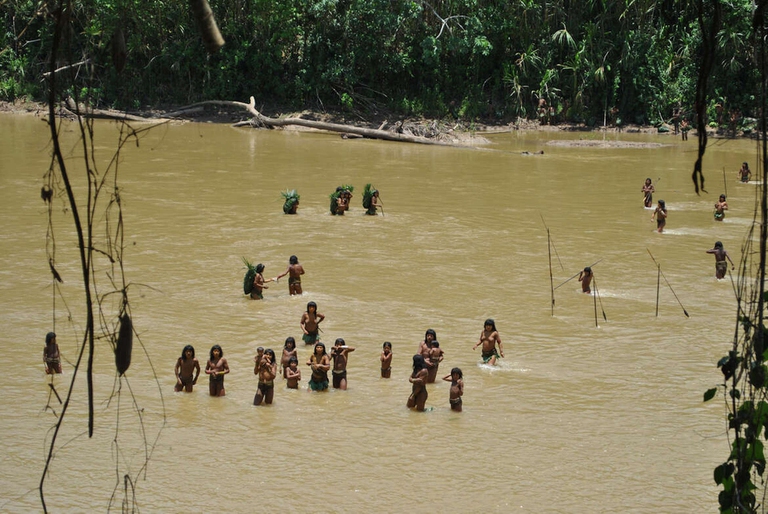https://www.lifegate.it/uncontacted-tribes-week
- |
- The Uncontacted tribes week organized by Survival to raise awareness among its supporters and public opinion about the rights of uncontacted peoples has begun.
- These are peoples who safeguard the biodiversity of their territories, whose existence is however threatened by presumed global progress.
It started on June 17th and will end on June 23rd Uncontacted tribes week, the international week of awareness and mobilization for the rights of the uncontacted peoples of the planet organized by Survival International.
In the global panorama, the existence of is estimated at least 150 uncontacted peoples, mainly located in the Amazon basin region.These communities, among the most self-sufficient in the world, constitute a crucial component of human diversity.However, their existence is seriously compromised by the inexorable exploitation of natural resources by industrialized nations.
Entire communities are in fact decimated by genocidal violence perpetrated by outsiders, who take away their lands and resources.Added to this are diseases, such as flu and measles, against which these people have no immune defenses, further worsening their situation.

There Uncontacted tribes week to raise awareness on the topic
Among the indigenous populations that Survival intends to raise awareness about during Uncontacted Tribes Week there is certainly one the Mashco Piro people, in Peru, probably the largest uncontacted people in the world.THE Mashco Piro they live in the Peruvian forest, on the border with Brazil and their territory is threatened by the activities of the Canales Tahuamanu logging company.The destruction of the forest, chance encounters with loggers and the spread of diseases could completely exterminate the members of this population.
Canales Tahuamanu even received the Forest Stewardship Council (FSC) certification, a recognition that should guarantee the ethical and sustainable work of the company.For this reason, Survival he urged FSC to immediately revoke the certification granted to this company, but without receiving a response.
Uncontacted peoples forced to leave the forest
Another population on which the spotlight is shining, at least those of Survival, is that of the Shompen, in India.The Indian government wants to transform the small island of Great Nicobar, where the uncontacted Shompen live, into the "Hong Kong of India".The development “mega-project”. it involves the construction of a gigantic port, a city, a power plant, a military base, an industrial park and much more, with a population increase of about 8,000 percent.If the project were to continue, it would be devastating:“We believe it would be a death sentence for the Shompen, equivalent to the international crime of genocide” we read in one letter to the Government of India signed by 39 international genocide scholars.
And then there are the people Hongana Manyawa, Indonesia.In a video released recently, and went viral, some uncontacted Hongana Manyawa are seen forced to leave their forest to ask for food from the miners who work on their land.The extraction of nickel, used for the production of electric car batteries, is rapidly destroying their forest and the Hongana Manyawa can no longer hunt.Following the release of the video, the president of the Indonesian Senate he stated that the country's government should "immediately intervene to provide protection to the indigenous tribe."
Uncontacted peoples are not relics of an outdated past
“Uncontacted peoples they are not primitive relics of a remote past inevitably destined for economic and cultural assimilation, or extinction" commented Francesca Casella, director of Survival International Italy.“They live in the present, they are our contemporaries; they are simply not industrialized and they evolved according to paradigms different from ours."
Uncontacted peoples are considered custodians of places with the highest biodiversity, but also the most vulnerable peoples in the world.The objective of the Uncontacted tribes week is precisely to mobilize public opinion on conservation issues:it depends on this type of awareness whether these peoples will survive or be sacrificed in the name of a presumed 'progress'.
